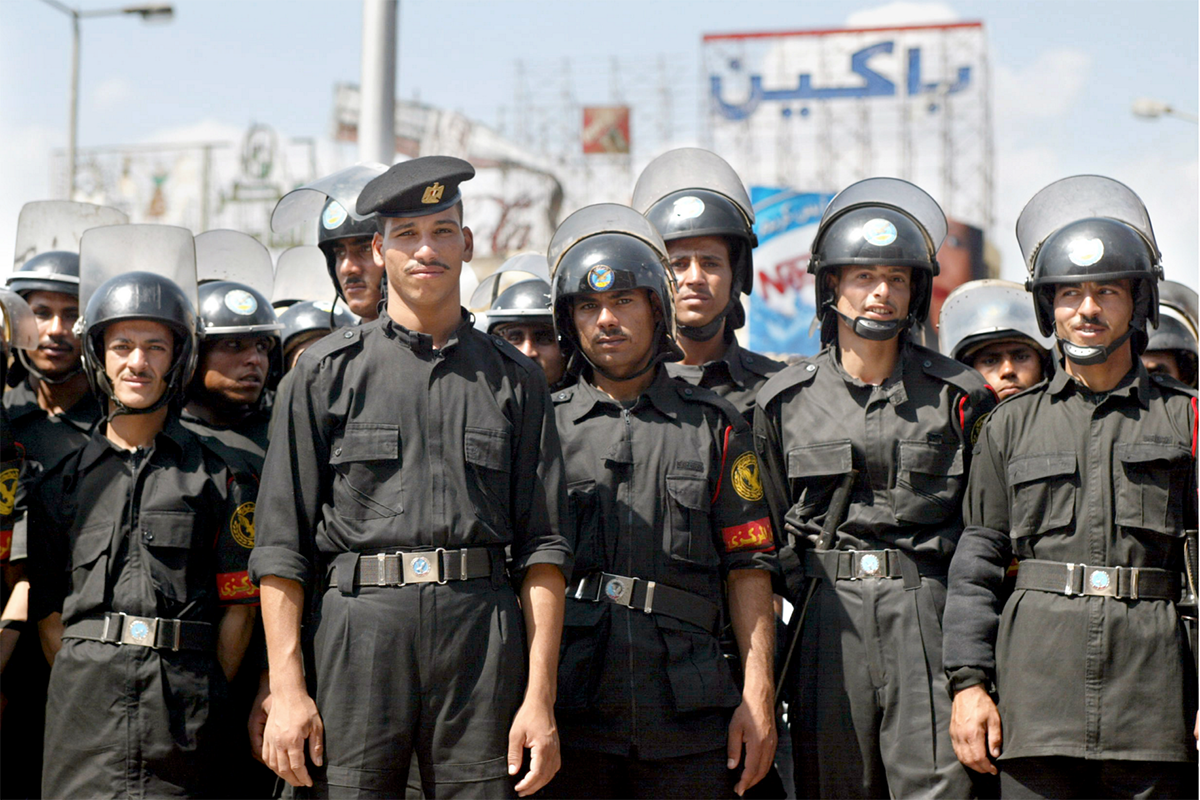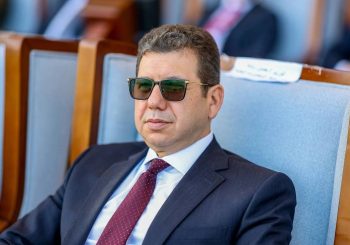In a bid to express their condolences for Talaat Shabib, a civilian who reportedly died at the hands of police, Luxor security officials organized a vigil on Saturday, according to news reports. Meanwhile, the Ministry of Interior has said it is investigating an array of cases of a similar nature.
The vigil, which was organized by the Luxor Security Directorate with the leadership of Assistant to the Ministry of Interior Essam El Hamali, is seen as an effort from officials to rehabilitate the security apparatus’ image as incidents of police torture and brutality have spiked.
According to privately-owned Youm7, the vigil organizers held up a banner expressing Luxor police’s support for ongoing investigations in the incident and its “complete readiness” to “apply the law” to any individuals found to be involved in the assault on Shabib, “if even with a hurtful word”.
مدير امن الاقصر و رجاله بيعزوا فى طلعت شبيب و بيقول عليه فقيد عالرغم ان من يومين بس كان بيقولوا للاعلام انه تاجر مخدرات
— Zeinobia (@Zeinobia) November 28, 2015
Translation: Luxor’s security director and his men mourned Talaat Shabib and called him deceased even though just two days ago they were telling media that he was a drug dealer
Last week, Luxor citizens took to the streets to express their outrage at Shabib’s death, leading to clashes between the citizens and police forces and the arrest of 24 demonstrators, who were later released.
According to a statement released after Shabib’s death, the head of Luxor’s Security Directorate said Shabib was arrested on suspicion of possession of narcotics and was a drug dealer with a criminal record. Shabib’s family denied the claims and said he actually made a living selling papyrus at Luxor’s ancient temples, state media Al-Ahram Online reported. The prosecutor-general has opened an investigation into the matter.
A similar incident occurred in Ismailia on Thursday, when a police officer entered a pharmacy and assaulted Afifi Hossni, the veterinarian managing the pharmacy, before allegedly taking him to the police station and beating him to death there.
According to independently owned Daily News Egypt, the Ismailia Security Directorate said Hossni suffered from a stroke while at the station, which is what led to his death. The Directorate also said Hossni was arrested on suspicions of possessing and dispensing narcotics through his pharmacy.
However, the Ministry of Interior has stated that the accused officer has been suspended from his post, pending an investigation into the incident.
On May 2 of this year, Sayed El-Kosbary was arrested in Rosetta, in El Beheira governorate, without being formally charged. Over the following three days, El-Kosbary was allegedly beaten and tortured several times at the hands of police officers. On May 5, he was transferred to a hospital but was pronounced dead on arriving.
The case against the police officers is currently underway and the verdict is due to be issued on December 10, according to Daily News Egypt.
Earlier this year, Egyptian President Abdel Fattah El-Sisi apologized for the human rights abuses committed by police forces.
“I apologize to every Egyptian citizen who has been subjected to any abuse. I am accountable for anything that happens to an Egyptian citizen,” El-Sisi said in June, after a police officer beat a lawyer with a shoe.
Nobel Peace Prize laureate and former Egyptian Vice President Mohamed El Baradei spoke out via Twitter against the most recent series of abuse incidents, saying “exceptional circumstances” do not serve as a valid pretext for torture.
فى كل مجتمع لديه قدر من الانسانية، وطبقا لاتفاقية الامم المتحدة لمناهضة التعذيب : لايجوز التذرع بأية ظروف استثنائية أيا كانت كمبرر للتعذيب. — Mohamed ElBaradei (@ElBaradei) November 27, 2015
Translation: In every community with some humanity, and in accordance with the United Nations Convention Against Torture: it is forbidden to use exceptional circumstances, whatever they are, as a pretext for torture.
El Baradei has spoken out against police brutality in the past. In June 2010, he led an anti-torture rally in Alexandria calling for an end to the state of emergency that saw police torture and brutality go unpunished.
Incidents of police brutality and the lack of accountability were among the driving forces behind the January 25, 2011 revolution. In June 2010, Khaled Said, a citizen of Alexandria was beaten to death by plainclothes police officers outside a local Internet café. At the time, the Ministry of Interior stated Said died of asphyxiation caused by swallowing a bag of narcotics.
A picture of Said’s battered face began circulating the Internet and a Facebook page, “We Are All Khaled Said,” attracted hundreds of thousands of followers. The page has been viewed as a catalyst of the 2011 revolution, as it increased awareness of police brutality under former President Hosni Mubarak’s rule.
Under the 2014 constitution, passed a few short months into El-Sisi’s tenure as president, “Torture in all forms and types is a crime that is not subject to prescription” (Article 52). Article 55 also holds that individuals who are arrested or detained may not be tortured or otherwise subject to physical or moral harm.







Comments (2)
[…] was one of three separate cases of deaths in custody in the space of a single week in November, sparking riots in Ismailia and the southern city of Luxor, where nine police officers are facing trial for beating a father of four to […]
[…] Egypt’s Ministry of Interior also organised a vigil for Shabib on November 28 and promised to crackdown on police brutality. […]